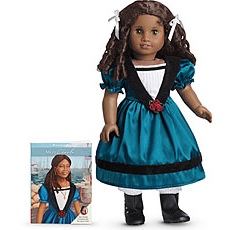Recently I was posed an interesting question about how early parents could start to involve their children in charitable activities. It's never too early to start teaching values. From the moment babies are born, parents are teaching their children. Babies whose scared cries are responded to with care learn that the world is a safe place and that they are loved. These babies quickly grow up into preschoolers who are already capable of showing care and concern for others and can be actively engaged in charitable activities. So as you think about your family’s summer plans, consider some of the following ideas as opportunities to teach important values and promote charity.
Every moment of every day is an opportunity to teach.
When parents learn how to use every moment of every day as an opportunity to teach children the values that they want their children to learn, teaching becomes embedded in daily activities. Think about your morning routine as an opportunity to teach love and generosity. For example, by waking children up with sufficient time to talk and connect, you teach your children that you value your time with them. If your child eats breakfast while you prepare family lunches, your child sees you making sure that their needs are met. Perhaps a neighborhood family needs your support and you could also make a lunch for their children, teaching your child the importance of generosity and caring for others in need.
No act of kindness is too small.
Involving children in charitable projects can start small and can start early. For example, consider involving your child in cleaning out drawers and closets and donating items that are no longer in use. While you go through the items, talk to your child about how donating these items will help children in need of clothing, toys and books. Remember that some young children may have a hard time giving up their toys, so be patient and remember that “No act of kindness is too small.” If a young child is not ready to give up all the toys and books that you feel she has outgrown, be patient.
Reflect on your habits and traditions
If involving your child in a larger charitable project is a priority, take time to think about how involving your child can become a priority in your schedule. Are there things that you can do on a weekly, monthly and yearly basis? Depending on your child’s age, your child’s role in the project will vary. Take your child’s age into consideration and think about what can be realistically expected. Perhaps a younger child might draw pictures for the folks in the nursing home but cannot be expected to visit for an entire hour. Whatever your commitment is, it is important to demonstrate to your child that the commitment is a priority for you.
I remember my mother saying to me growing up, “If you want to be happy, then go do something nice for someone else.” As you reflect about how to enjoy the summer with your children, consider how charitable activities can play an important role in that process.
 Paul LeBuffe is the director of the Devereux Center for Resilient Children in Villanova, PA, whose mission is promoting the resilience of all children and the adults who care for them; he will be contributing to this blog on a monthly basis. More information on promoting resilience can be found at the center’s website.
Paul LeBuffe is the director of the Devereux Center for Resilient Children in Villanova, PA, whose mission is promoting the resilience of all children and the adults who care for them; he will be contributing to this blog on a monthly basis. More information on promoting resilience can be found at the center’s website.






